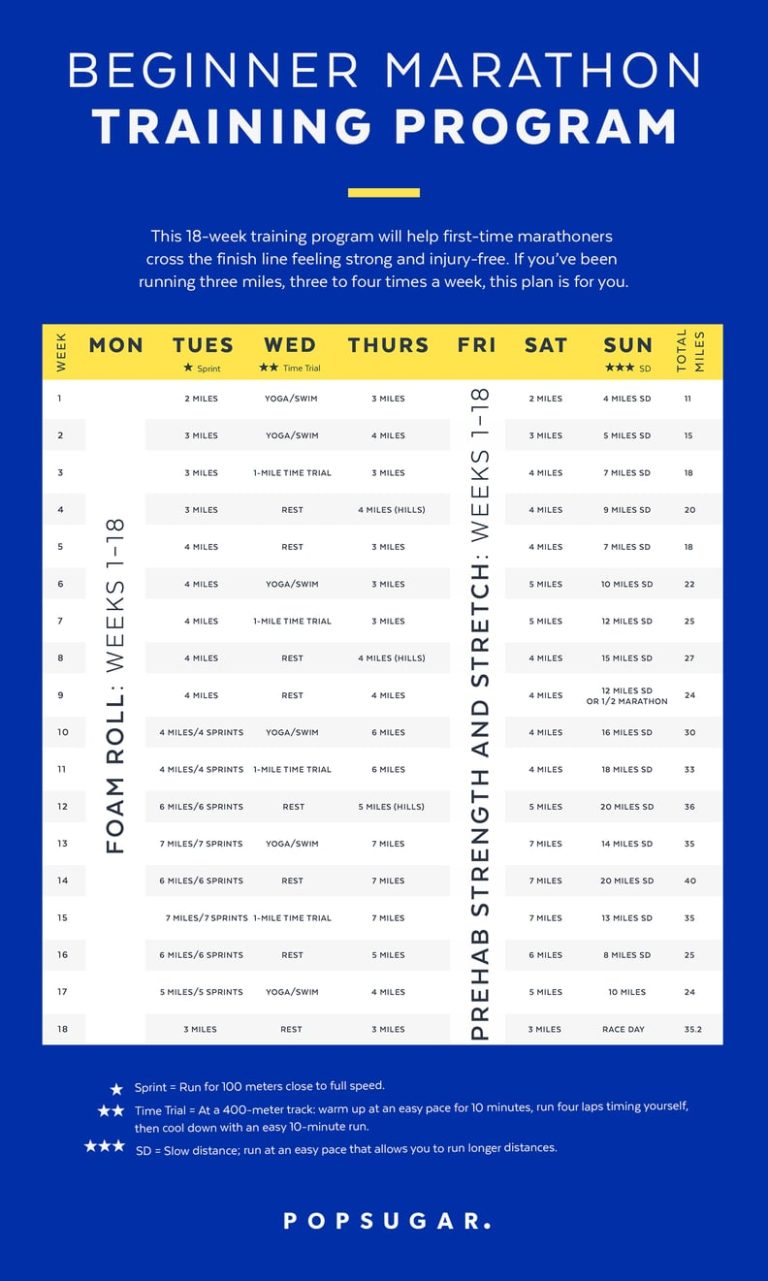How Do You Know If You are Ready for a Marathon
How do you know if you are ready for a marathon? If you can comfortably run 20-25 miles per week and have completed at least one long run of 18-20 miles, then you may be ready.
Additionally, if you have gradually increased your mileage and have been injury-free for at least 6 months, you are likely prepared for a marathon. A solid base of running, proper nutrition, and adequate rest are essential for marathon readiness. It’s also important to have a positive mindset and realistic expectations.
We’ll delve into the key factors that indicate you are ready for the challenge of a marathon, as well as tips for effective training and preparation.

Credit: www.sarakurth.com
Signs Of Readiness
Participating in a marathon is an arduous challenge that requires both physical fitness and mental preparedness. Deciding to take on the 26.2-mile journey is a significant commitment, and ensuring you are ready for the demands of a marathon is crucial for a successful and enjoyable experience. In this blog post, we will discuss the signs of readiness that indicate whether you are physically fit and mentally prepared to tackle the marathon.
Physical Fitness Level
Your physical fitness plays a pivotal role in determining your readiness for a marathon. To complete the race without jeopardizing your health, it is essential to assess your current fitness level. Consider the following indicators:
- Aerobic endurance: Do you have a solid cardiovascular foundation that can handle the long-distance strain?
- Build-up mileage: Have you progressively increased your mileage to ensure your body can withstand the distance?
- Running pace: Are you able to maintain a consistent pace throughout your long runs?
- Recovery time: Do you have a quick recovery time between runs, indicating that your body can handle the stress?
Evaluating your physical fitness level based on these factors will provide a good indication of whether your body is prepared for the grueling demands of a marathon.
Mental Preparedness
In addition to physical readiness, mental preparedness is equally important when considering whether you are ready for a marathon. Running a marathon requires mental strength, determination, and the ability to overcome challenges. To determine your mental preparedness, consider the following:
- Commitment: Are you committed to the rigorous training schedule and the sacrifices that come with it?
- Focus: Can you maintain concentration and focus, even during long, monotonous training runs?
- Persistence: Are you able to push through mental barriers and keep going when faced with fatigue or discomfort?
- Motivation: Do you have the intrinsic motivation and desire to complete a marathon, even when faced with setbacks?
Assessing your mental preparedness against these factors will help you determine if you possess the resilience and determination necessary to conquer the mental challenges of a marathon.
By evaluating your physical fitness level and mental preparedness against these indicators, you can gain a better understanding of whether you are truly ready to take on the incredible feat of running a marathon. Remember, marathon training is a journey in itself, and being honest with yourself and your abilities will set you up for a successful and rewarding experience.

Credit: finefitday.com
Training Milestones
When it comes to marathon training, hitting certain milestones is key to determining if you are ready for the big race. These training milestones help track your progress and ensure that you are building the necessary endurance and speed for a successful marathon. Let’s take a look at some of the crucial training milestones that indicate you are on the right track for marathon readiness.
Consistent Long-distance Runs
Consistency in long-distance running is essential for marathon preparation. Regularly logging long runs, gradually increasing your distance, is a telling milestone. It demonstrates that your body is adapting to the demands of sustained running and is developing the endurance needed for a marathon. Reaching the point where you can comfortably complete several long runs of 18-20 miles is a strong indicator that you are physically and mentally prepared for the marathon distance.
Speed And Endurance Improvement
Improvement in both speed and endurance is a vital milestone for marathon readiness. Tracking your pacing and observing gradual enhancements in your performance during long runs and speed workouts signifies that your body is adapting to the demands of marathon training. Notable strides in your ability to maintain pace over long distances and sustained efforts indicate that your body is developing the necessary endurance and speed for the marathon.
Nutrition And Hydration
Nutrition and hydration play a crucial role in preparing for a marathon. Without proper fuel and fluid intake, the body won’t be able to perform at its best. A balanced diet and a well-thought-out hydration plan are essential for success.
Balanced Diet
A balanced diet rich in carbohydrates, protein, healthy fats, and nutrient-dense foods provides the necessary energy for training and race day. Carbohydrates are the primary fuel source for endurance activities, so whole grains, fruits, and vegetables should be staples in the diet. Protein aids in muscle repair and recovery, so include lean meats, beans, and dairy products. Healthy fats from sources like avocado, nuts, and oily fish support overall health and performance.
Hydration Plan
Developing a proper hydration plan is equally important. Water is essential for maintaining bodily functions and preventing dehydration. Electrolyte-rich beverages can help replenish lost minerals during long runs. A general guideline is to drink water regularly throughout the day and during exercise, aiming for 2-3 liters depending on individual needs and climate. Monitoring urine color can indicate hydration status, with pale yellow being the goal.
Recovery And Rest
When it comes to marathon training, many runners focus primarily on building endurance and mileage. However, one crucial aspect that is often overlooked is recovery and rest. Recovery plays a vital role in preventing injuries, enhancing performance, and allowing the body to adapt to the demands of long-distance running. In this blog post, we will discuss two essential factors under the subheading of Recovery and Rest: The Importance of Rest Days and Post-Run Recovery Strategies.
Importance Of Rest Days
Rest days are just as important as the training itself. They provide your body with the valuable time it needs to repair, rebuild, and strengthen muscle tissues that were stressed during intense workouts. Athletes who neglect rest days increase their risk of overuse injuries, such as stress fractures, tendonitis, and muscle strains, which can derail their marathon training goals.
Rest days allow your body to recover, reducing inflammation and restoring glycogen levels in muscles. It is during rest that your body adapts to the stress of training, becoming stronger and more resilient. Additionally, rest days help to prevent physical and mental burnout, giving you the opportunity to recharge and maintain motivation for long-term training.
It’s essential to listen to your body and pay attention to signs of fatigue and excessive soreness. If you experience persistent muscle aches, decreased performance, or trouble sleeping, it may indicate that you need an extra rest day. Remember, a well-rested body is better equipped to handle the demands of marathon training and perform optimally on race day.
Post-run Recovery Strategies
Effective post-run recovery strategies can significantly enhance your marathon training and overall performance. Here are a few key strategies to incorporate into your routine:
- Proper Nutrition: Refuel your body with a balanced combination of carbohydrates, proteins, and healthy fats within 30 minutes after completing your run. This aids in muscle repair and replenishment of glycogen stores, helping you recover faster.
- Hydration: Replace lost fluids by consuming enough water or a sports drink that contains electrolytes. Staying hydrated aids in muscle recovery, reduces muscle cramps, and maintains overall body function.
- Stretching and Foam Rolling: Engage in gentle stretching exercises and use a foam roller to release tension in muscles. This promotes flexibility, increases blood flow, and reduces the risk of imbalances and injuries.
- Active Recovery: Incorporate low-intensity activities like walking, yoga, or swimming on your rest days. These gentle exercises enhance blood circulation, facilitate recovery, and alleviate muscle soreness.
- Quality Sleep: Prioritize sufficient sleep to ensure optimal recovery. Sleep is crucial for muscle repair, hormone regulation, and mental rejuvenation. Aim for 7-9 hours of uninterrupted sleep each night.
- Ice Baths and Cold Therapy: Consider using ice baths or ice packs on sore muscles to reduce inflammation and aid in recovery. Alternating hot and cold showers can also stimulate blood flow and promote healing.
By implementing these post-run recovery strategies, you can optimize your body’s ability to repair and adapt, leading to improved performance and a reduced risk of injuries during marathon training.
Race Day Readiness
Building mental toughness is crucial for marathon readiness. Stay focused on your goal during the race.
- Visualize success: Imagine yourself crossing the finish line.
- Stay positive: Replace negative thoughts with affirmations.
- Breathe: Use deep breathing techniques to stay calm.

Credit: runkeeper.com
Frequently Asked Questions For How Do You Know If You Are Ready For A Marathon
How Far Should You Run To Prepare For A Marathon?
To prepare for a marathon, gradually increase running distance up to 20-22 miles for long runs.
How Long Does It Take To Prepare For A Marathon For Beginners?
It typically takes beginners several months to prepare for a marathon. Training schedules can vary, but a general guideline is around 16-20 weeks of consistent running and gradual increases in mileage. Dedication and a progressive approach are key for beginners to build endurance and avoid injury.
When Should You Not Run A Marathon?
It’s not advisable to run a marathon if you have an existing injury, illness, or are unprepared physically. Pregnant women should not participate. Additionally, if you’re feeling unwell on the race day, it’s best to skip it. Always consult with a healthcare professional before attempting a marathon.
Conclusion
Deciding whether you are ready for a marathon can be a daunting task. By understanding the signs of readiness, such as having a solid training plan, appropriate physical fitness, and mental preparedness, you can confidently take on this endurance challenge.
Remember to listen to your body, seek advice from professionals, and set realistic goals. With dedication and determination, you can conquer the marathon and achieve your personal best.






